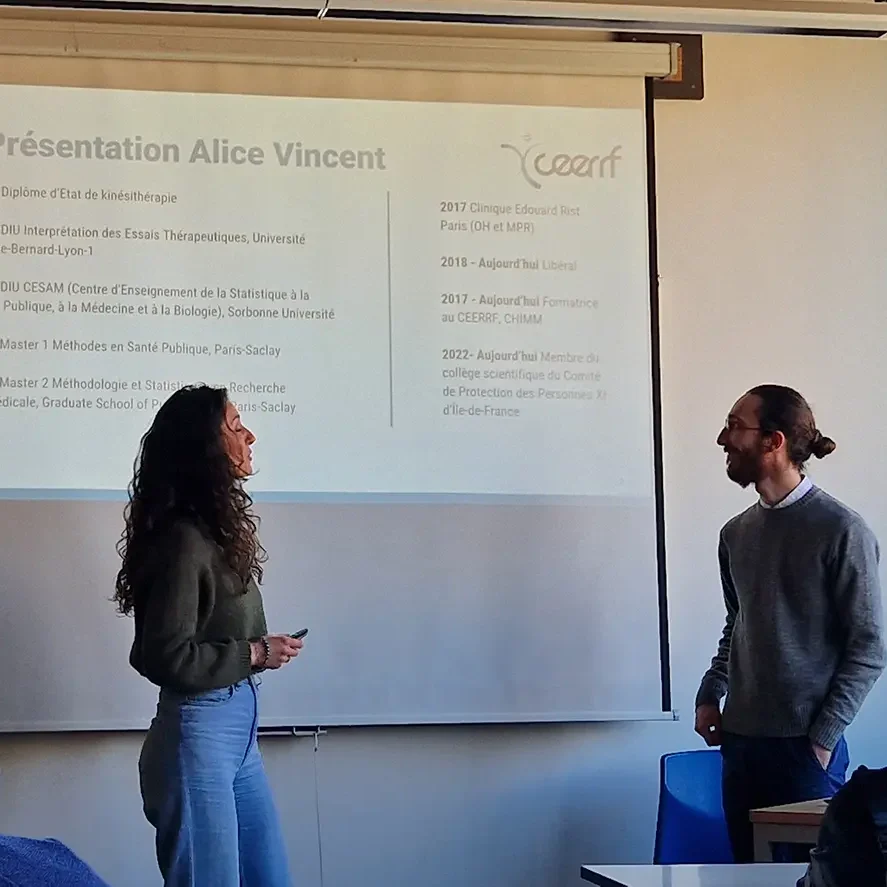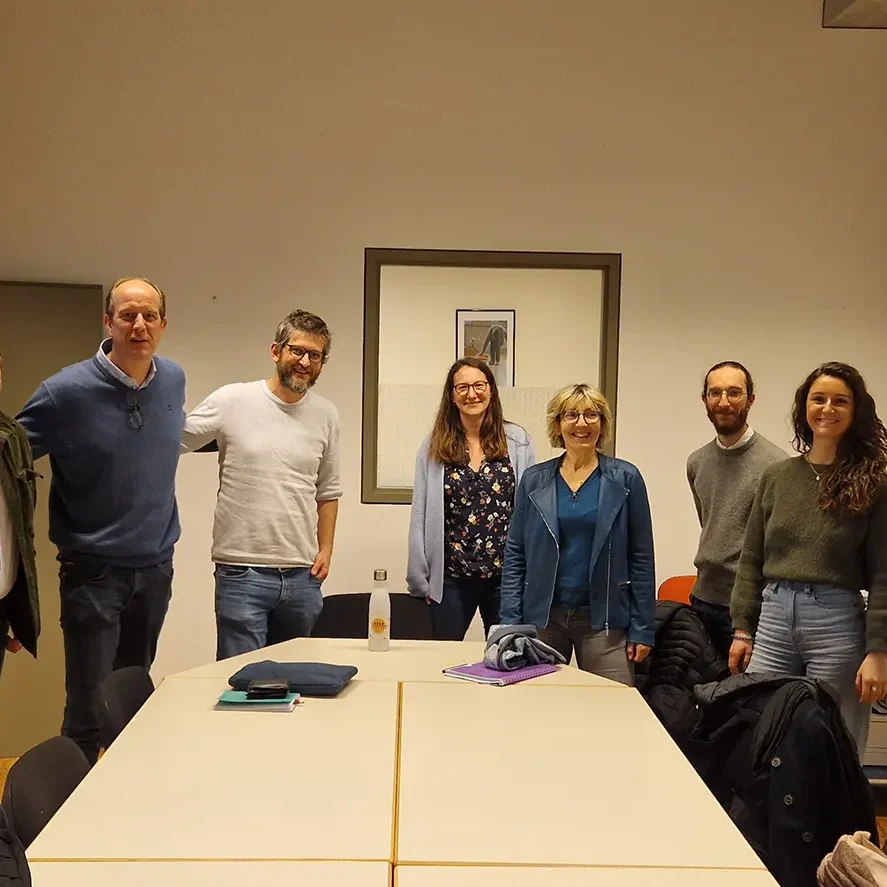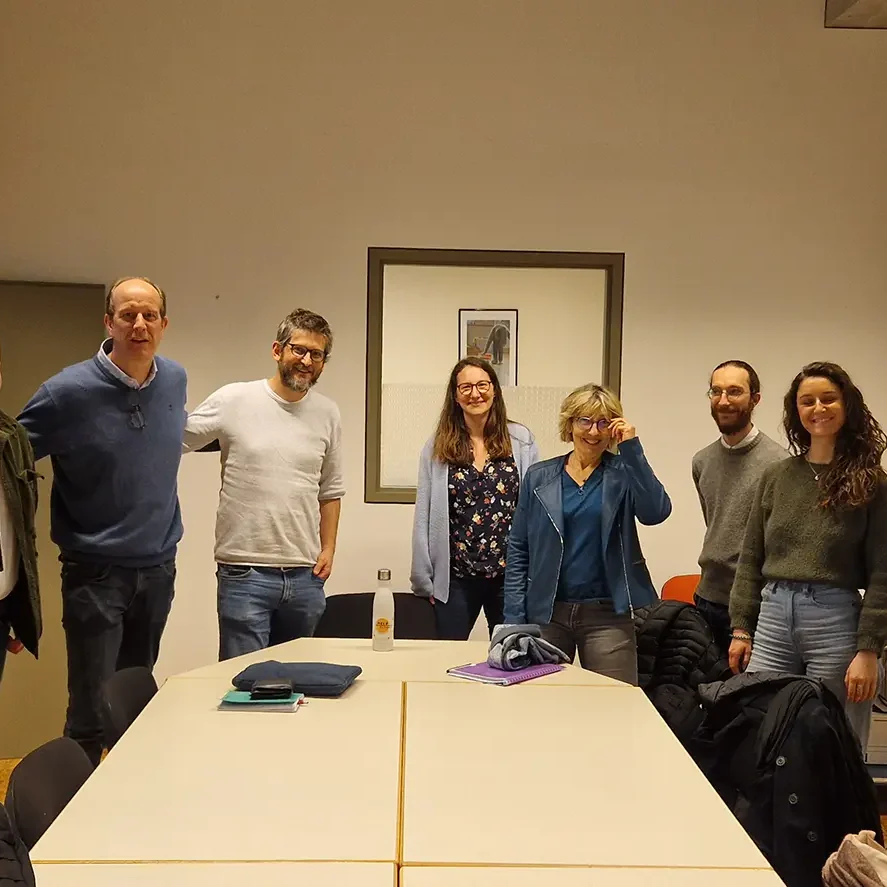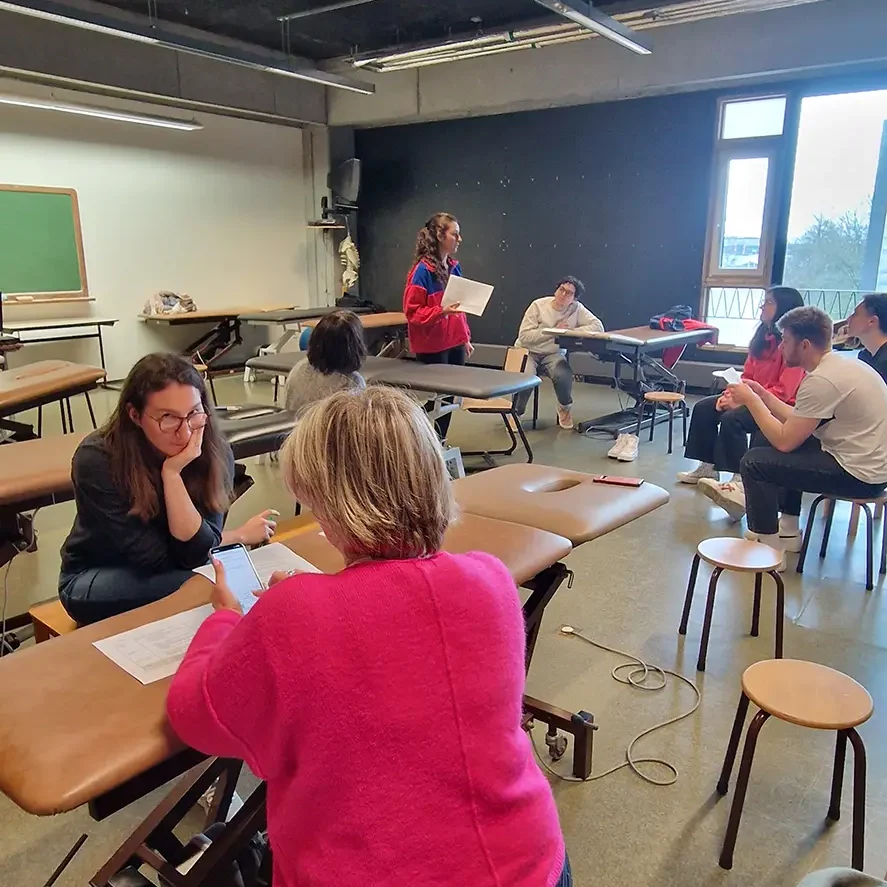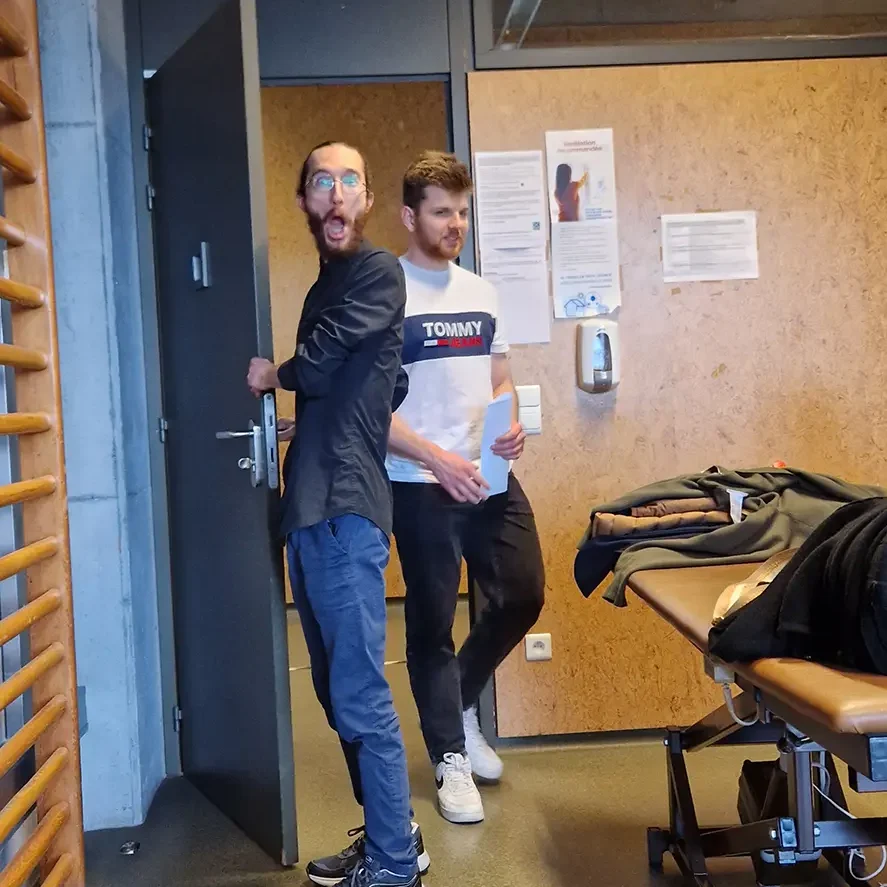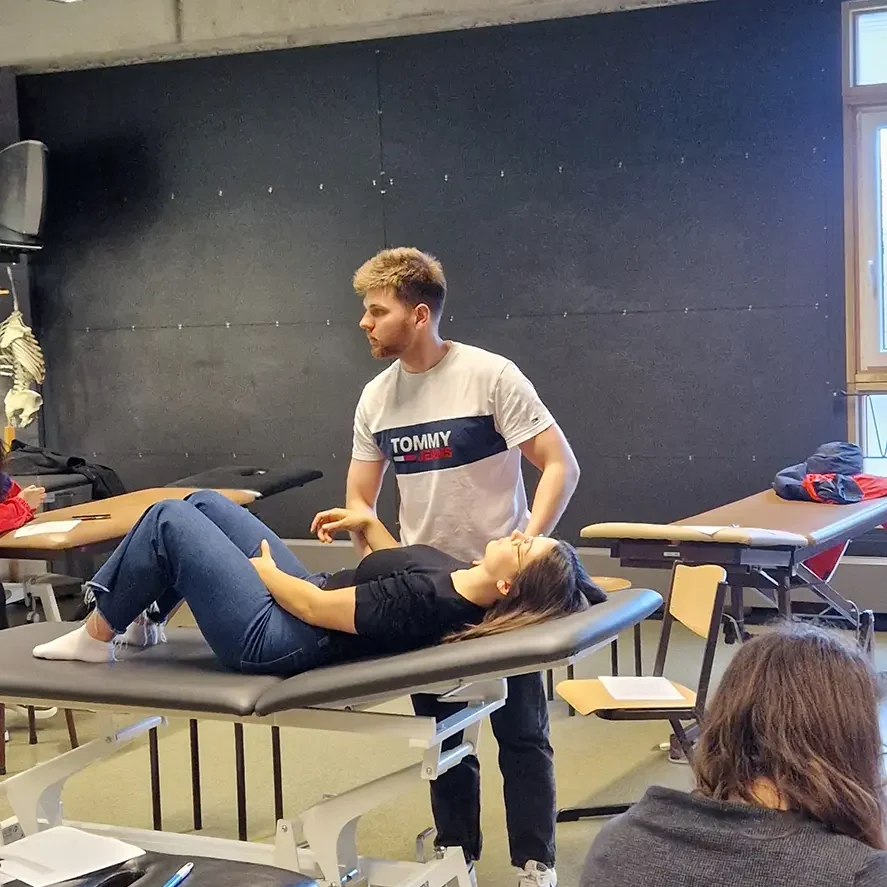Furthering Pedagogical Exchanges between HELB and CEERRF
Continuing the development of the Erasmus+ Program and following Haute Ecole Libre de Bruxelles (HELB)‘s participation in the recent international week at CEERRF, the school and institute are enhancing their pedagogical exchanges for the benefit of their teachers and students.
During their pedagogical meeting last March, Charlotte Couvreur, pedagogical coordinator of the Physiotherapy Program at HELB, along with her colleagues Bénoit Schoefs and Ludovic Nassel (physiotherapists, teachers, and coordinators of end-of-study projects), invited our teachers Aurel Bellaiche and Alice Vincent to participate in this gathering.
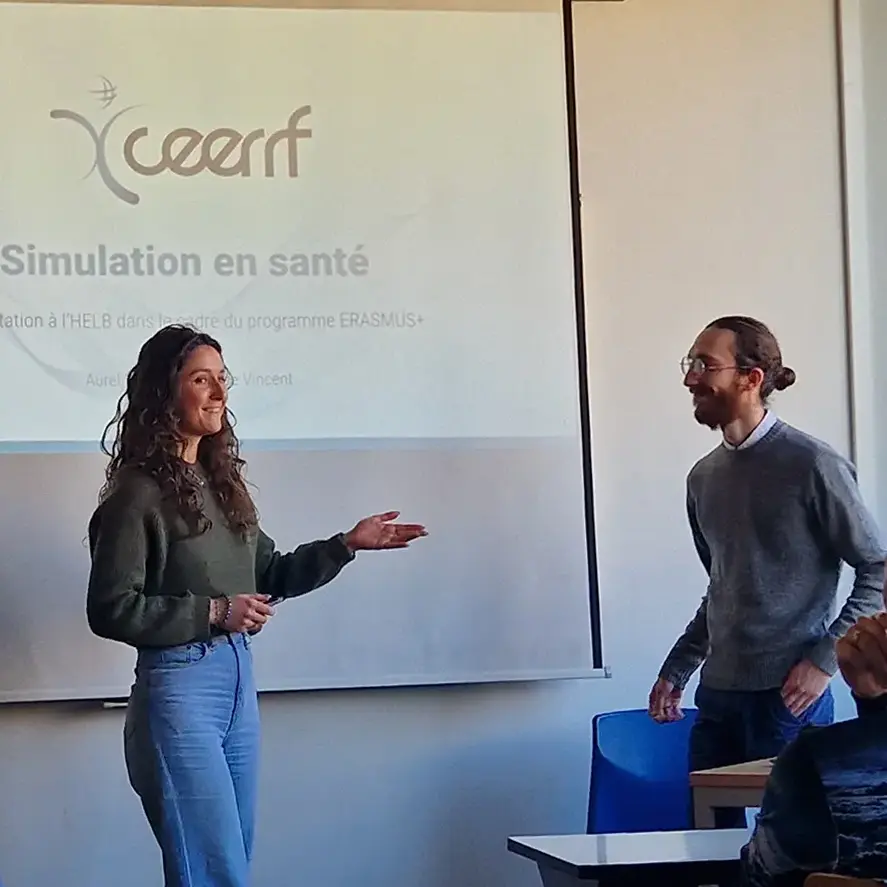
Presenting the clinical simulation setup
The agenda included presentations and discussions on End-of-Study Projects (TFE) and pedagogical innovation in Clinical Simulation, Objective Structured Clinical Examination (OSCE), among teachers, and participatory workshops with HELB students.
CEERRF teachers were invited to present the clinical simulation setup to the pedagogical team, followed by a Q&A session and interview format.
They were tasked with conducting a simulation exercise with third-year HELB students upon our arrival, leading to enriching exchanges between teachers and students during the debriefing.
In this context, CEERRF was able to express to HELB’s pedagogical team, its director Cédric Hublet and international coordinator Michael Robert, its desire to implement new pedagogical innovation tools by expressing interest in Clinical Simulation practice in the joint training of our students.
Clinical Simulation is a structured learning tool designed to place learners at the center of their training process by simulating scenarios closely resembling real-life clinical cases.
The transmission of educational content
For teachers, this device facilitates the transmission of pedagogical content through structured debriefing, based on students’ experiences, thereby facilitating their learning. While widely recognized in medical education, these didactic capabilities are still emerging in initial physiotherapy training.
Thus, CEERRF is committed to implementing such means to enhance the professionalism of its students.
In conclusion, this meeting was particularly enriching and promising for our future collaboration. We are eager to continue our exchanges and explore new opportunities together.
The entire CEERRF team warmly thanks HELB for their hospitality during this exchange, shedding light on new pedagogical perspectives, while aiming to sustain this partnership and continue the Erasmus+ program mobility, fostering a reflective and globally-oriented physiotherapy education.



